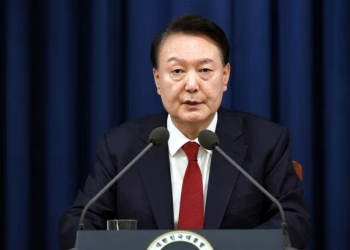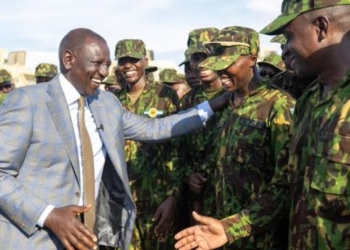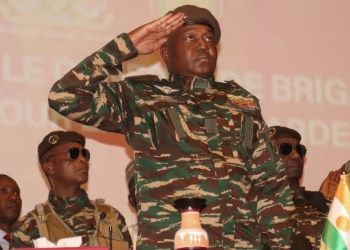Anura Kumara Dissanayake, a left-leaning politician, has emerged victorious in Sri Lanka’s presidential election following a historic second round of counting.
In the first round, no candidate secured over 50% of the votes, with Dissanayake receiving 42.31% and his nearest rival, Sajith Premadasa, garnering 32.76%. After the second count, which included voters’ second and third choices, Dissanayake secured a total of 5,740,179 votes, compared to Premadasa’s 4,530,902.
This election marked the first since mass protests led to the ousting of former President Gotabaya Rajapaksa in 2022 amid a severe economic crisis. Dissanayake, 55, expressed his gratitude, stating, “This victory belongs to us all,” on social media.
To revitalize the economy, Dissanayake has pledged to boost the manufacturing, agriculture, and IT sectors and to uphold the agreement with the International Monetary Fund (IMF) aimed at easing the impact of austerity on the poorest citizens.
Notably, all previous presidential elections in Sri Lanka since 1982 were decided in the first round, making this poll one of the closest in the nation’s history. Seventeen million voters were eligible, and the elections commission reported it was one of the most peaceful elections ever held in Sri Lanka, although a curfew was briefly imposed for public safety.
Dissanayake’s campaign focused on anti-corruption and good governance, resonating with voters eager for systemic change following the crisis. His party, the Marxist Janatha Vimukthi Peramuna (JVP), had a tumultuous past but gained prominence during the 2022 protests, known as Aragalaya, or “the struggle.”
As the results came in, several prominent figures, including the foreign minister, congratulated him, though he faced some challenges from Premadasa as counting progressed. Incumbent president Ranil Wickremesinghe finished third with 17% of the vote and was eliminated in the second count.
Dissanayake will inherit the daunting task of reviving an economy battered by a severe crisis, where foreign reserves dwindled, public debt surged to $83 billion, and inflation soared to 70%. The situation has led to widespread poverty, a crisis blamed on policy missteps, corruption, and the impacts of the COVID-19 pandemic.
Political analysts highlight that restoring the economy is Dissanayake’s most pressing challenge, especially as Sri Lanka restructured its $36 billion foreign debt under IMF guidance, which includes strict reforms for economic recovery. Both Dissanayake and Premadasa have called for significant investments in IT and tourism as part of their economic strategies.















